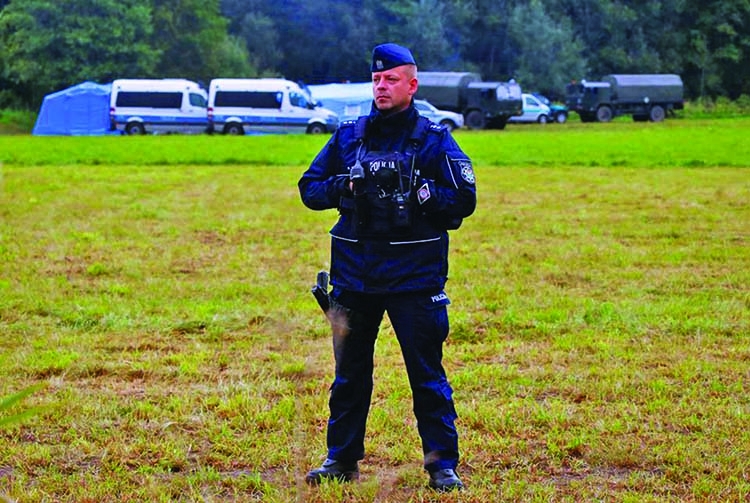Poland requests state of emergency on Belarus border amid migrant surge

The Polish government asked the president on Tuesday to declare a state of emergency in two regions on its border with Belarus after the Polish Border Guard said hundreds of illegal crossingshad taken place this month. Poland began building a barbed wire fence last week along the border in an effort to curb the flow of migrants from countries such as Iraq and Afghanistan crossing from Belarus. A state of emergency would give authorities broader powers to monitor and control people's movements.
President Andrzej Duda, a close ally of the ruling nationalist Law and Justice party (PiS), is likely to approve the state of emergency, which would last for 30 days and cover parts of the Podlaskie and Lubelskie regions. "The situation on the border with Belarus is a crisis and is still tense," Prime Minister Mateusz Morawiecki told a news conference as he announced the move.
Relations between the European Union and Belarus have worsened sharply over the past year since President Alexander Lukashenko claimed victory in an election his opponents and Western countries say was rigged. The EU has slapped economic sanctions on Belarus and has accused Lukashenko of deliberately encouraging illegal migrants to cross into Poland and the Baltic states Latvia and Lithuania in a form of "hybrid warfare".
"Lukashenko's regime decided to push these people onto Polish, Lithuanian and Latvian territory in an effort to destabilise them," Morawiecki said. Interior Minister Mariusz Kaminski said the planned state of emergency would mostly apply to areas on or near the border.
Poland also sees Belarus's behaviour as retaliation for Warsaw's decision to give refuge to Krystsina Tsimanouskaya, a Belarusian athlete who refused to return home from the Tokyo Olympics. Minsk has not responded to requests for comment. Polish authorities have faced criticism from human rights groups for not accepting migrants, and for denying those at the border adequate medical care. Warsaw says they are the responsibility of the Belarusian authorities.
